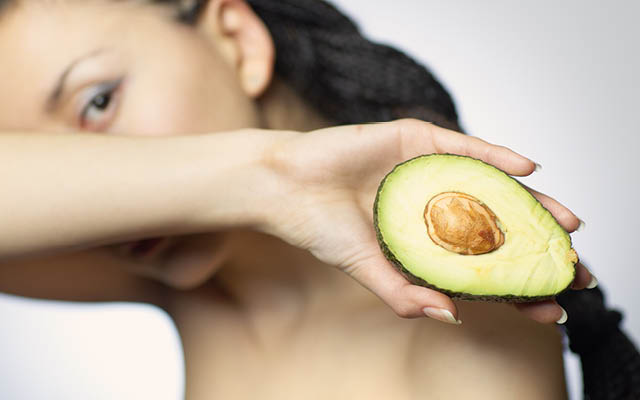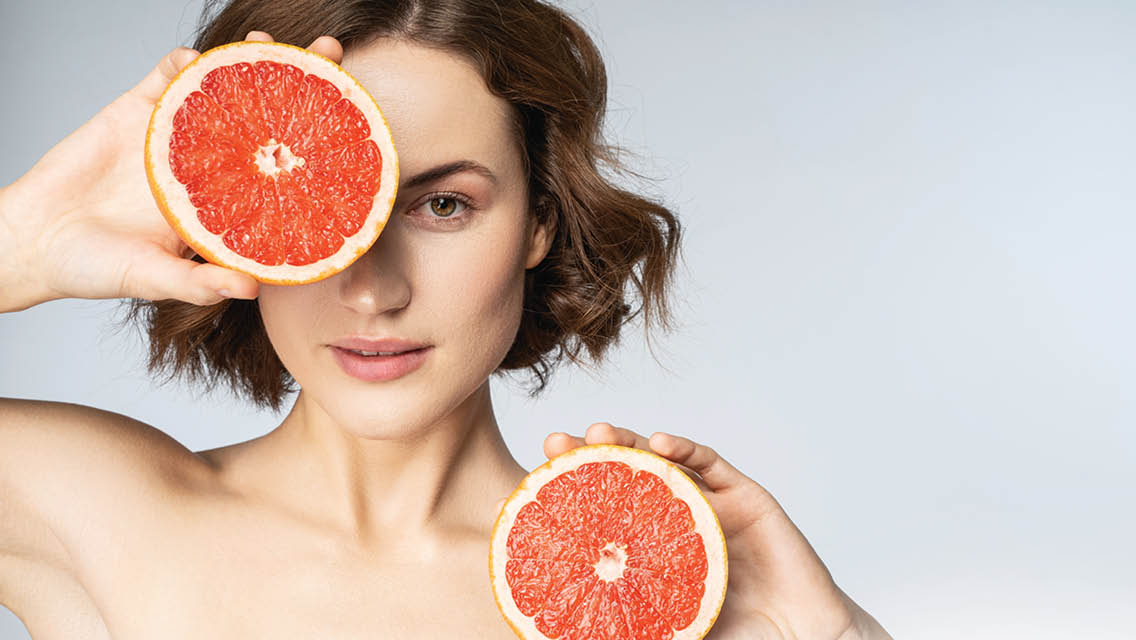Explore the natural uses of the following ingredients and discover recipes for promoting healthy skin:
Avocado ⋅ Tea Tree Oil ⋅ Black, Green, and White Tea ⋅ Dandelion ⋅ Papaya ⋅ Oats
When you feel good in your own skin, it can make all the difference. One of the best ways to do this is by using natural remedies. “Nature provides us with plants and herbs that have powerful abilities to help clear, rejuvenate, and heal the skin,” says Trevor Cates, ND, author of Clean Skin from Within: The Spa Doctor’s 2-Week Program to Glowing, Naturally Youthful Skin. “Choosing natural solutions enhances the skin’s appearance and your natural beauty.”
Another important factor? When you go natural you also avoid the harmful effects of potentially toxic chemicals in many common skincare products. “Most natural remedies such as herbs are very safe,” says herbalist Brigitte Mars, A.H.G., the author of The Desktop Guide to Herbal Medicine. “Herbs have been used by millions of people for thousands of years and that’s a lot longer than the latest drug.” So, if your goal is to embrace the right nutrients for skin health, you’d be remiss not to consider these cures as part of a holistic approach to wellness.
1) Avocado
What it’s good for: Dry Skin/Collagen Growth
Why it works: Avocados contain skin-nourishing vitamin E, which promotes softness and helps prevent wrinkles.
How to use it: It’s easy to transform a ripe avocado into a moisturizing mask for your skin.
- Just mash one up in a bowl, add a little raw honey, and apply the mixture to your face. (If you’re wondering why raw honey, read this article.)
- Leave on for 10 minutes.
- Rinse with warm water and pat dry with a towel. (Don’t use if you are allergic to avocados.)
2) Tea Tree Oil (Melaleuca alternifolia)
What it’s good for: Acne
Why it works: “Tea tree oil has antimicrobial and anti-inflammatory properties and it’s well known that it helps to reduce breakouts if you have mild or moderate acne,” says Dr. Cates. “Research shows that it can also address seborrheic dermatitis and it speeds wound healing.”
How to use:
- To dry up blemishes, just put a couple drops of diluted tea tree essential oil on a cotton ball and dab on the affected area.
- Reapply as needed.
- Alternatively, look for high-quality blemish sticks that contain tea tree oil.
3) Black, Green, and White Tea (Camellia sinensis)
What it’s good for: Toner
Why it works: Black tea leaf generally has considerably higher caffeine content than green tea so it makes an effective antibacterial astringent. It also helps to reduce skin redness and puffiness and protects against sun damage. “When you apply it regularly as part of your skin routine — after cleansing and before moisturizing — it can help control acne breakouts,” says Cates.
Green and white tea (young leaves) contain tannins that tone the skin, reducing fine lines and wrinkles, and anti-inflammatory compounds known as catechins to brighten the complexion. Green tea has high amounts of naturally occurring compounds known as polyphenols that act as antioxidants to neutralize free radicals and reduce the signs of aging.
How to use it:
- Mix 2 tablespoons of steeped and cooled black, green, or white tea with 1 teaspoon sweet almond oil and two drops of ylang-ylang essential oil, Cates suggests.
- Apply to your face.
- Leave on for two to three minutes, and rinse off with warm water.
4) Dandelion (Taraxacum officinale)
What’s it good for: Detox, Eczema, and Psoriasis
Why it works: The name “dandelion” derives from the French dent de lion, “tooth of the lion,” a reference to the jagged shape of the leaves. A member of the Asteraceae (daisy) family, dandelion contains vitamins A and C antioxidants that neutralize free-radical damage associated with aging. The sap from a dandelion stem is alkaline and has germicidal and fungicidal properties, and dandelion root can help ease eczema and psoriasis. “Dandelion improves skin conditions because it helps to detoxify the liver, which is reflected in the skin,” says Mars. A 2017 Chinese study suggests that it may be the polysaccharides in the dandelion that are beneficial to liver function.
How to use it:
- Pour boiling water over a quarter cup of plucked and cleaned dandelion flower petals, steep for five minutes, and strain and drink. You can also use a prepared tea.
Check with your health practitioner first if you are allergic to plants in the same family — ragweed, daisies, chamomile, marigold, and sunflowers — or if you are pregnant or on antacids or blood thinners.
5) Papaya
What it’s good for: Nourishing the Skin/Exfoliant
Why it works: Papaya is rich in vitamins A, C, and E, which are nourishing and protective. It also contains papain, a natural enzyme and alpha-hydroxy acid that exfoliates the skin, improving the tone, texture, and appearance of the skin. “Papaya is one of my favorite DIY skincare ingredients,” says Dr. Cates. “It hydrates the skin and can reduce signs of aging, such as fine lines, wrinkles, and hyperpigmentation.”
How to use it: Choose greener, less-ripe papayas, because they have higher amounts of papain.
- Gently massage your face with the inside of the papaya skin for two to three minutes and rinse with cool water.
- If you have sensitive skin, choose ripe papayas, because they are less likely to trigger an inflammatory reaction.
6) Oats
What it’s good for: Inflamed, Itchy Skin
Why it works: Oats contain saponins, compounds that enable oats to cleanse the skin without drying it out. Oats provide moisturizing, healing, antioxidant, and anti-inflammatory skin benefits. Because oats soothe the skin this remedy is good for inflamed, itchy, irritated skin and can help with eczema and hives.
How to use it:
- Blend 2 tablespoons finely ground oats in a small bowl with 2 tablespoons of sweet almond oil — or jojoba oil for those with acne-prone skin — and gently apply to damp skin using a circular motion for two to three minutes.
- Rinse with warm water.
- For eczema, put two handfuls of oatmeal inside a washcloth, tie the top, and add it to a warm bath. Oats may make the bathtub surface more slippery so be sure to use a bath mat or rail to avoid mishaps.
Your skin’s appearance is a reflection of your inner health. Learn what to eat and what to avoid for a healthy complexion at “What to Eat for Health Skin” from which this article was excerpted.




This Post Has 0 Comments